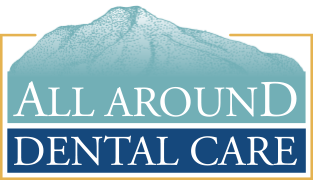Tooth Decay
Despite its prevalence, we don’t want any patient to think they’re destined for tooth decay, even if they’ve had a hard time avoiding it in the past. There are a lot of factors that contribute to your oral health, but be assured that at our practice you’re in the hands of compassionate decay prevention experts.
Anyone who’s been to the dentist knows we have a lot more tools than just a toothbrush & floss for caring for your teeth. In addition to removing plaque, our arsenal of hand tools & handpieces are designed to remove hardened deposits called tartar or calculus that are hard for you to remove yourself using just a toothbrush & floss. During a cleaning visit, we also check your teeth thoroughly for existing signs of decay. If we find a problem, we will talk to you about fixing it as soon as possible with a filling, a crown, or another treatment if the decay is more severe. Of course, our favorite outcome is when we find no decay at all. Understanding how decay starts is a great way to solidify your understanding of how to prevent it.
What Is Tooth Decay?
Statistically speaking, tooth decay could be considered the second most common illness humans suffer from (number one is the common cold). If left untreated, tooth decay can lead to pain & more severe problems such as abscesses or systemic infections, not to mention tooth loss. Data indicates that almost every adult has had tooth decay at some point. Our goal is to reverse this trend, at the very least in our local community. Educating our patients about how tooth decay happens & how to prevent it is how we hope to accomplish this.
One myth seems to have emerged from how we were taught about tooth decay & cavities as children: avoid sugar & you can avoid cavities. The reality is there is no single thing you can do to prevent tooth decay. Rather, preventing cavities is a collection of good habits, maintenance & professional attention. The steps for a decay-free smile, in no particular order are a healthy diet, a thorough daily hygiene routine, & seeing us regularly for teeth cleanings & checkups.
Causes of Tooth Decay
Just like other parts of your body, your mouth is populated by both good & bad bacteria. When you don’t care for yourself properly, you can end up creating an environment where the bad (i.e. pathogenic) bacteria get the upper hand. In particular, these bacteria thrive when there is plenty of sugar for them to consume, which they digest & excrete as acid. This acid is what damages your teeth, eating into your tooth enamel & the softer dentin layer underneath. Eating highly acidic foods (lemons, tomatoes, soft drinks, etc.) can also weaken & even wear away your teeth.
Keeping Your Mouth Healthy
If your mouth is in an ideal condition, your body’s own immune responses & mechanisms, such as healthy saliva that contains tooth-building minerals, repair damage & keep bad bacteria from getting out of control. The goal of preventing decay is to keep your mouth in this healthy, balanced condition at all times. If you brush & floss correctly, get enough fluoride, limit your consumption of acidic or sugary foods & visit the dentist regularly, this should be easy for you.
Guidance On Preventing Tooth Decay
However, some patients have a tougher time preventing tooth decay & we are happy to provide guidance. If you’ve had a few run-ins with cavities, you may need a refresher course on your brushing or flossing techniques, which we’re happy to provide at your next visit. You can also boost the effectiveness of your at-home hygiene with special toothpastes, mouth rinses, toothbrushes, or floss options. We’re happy to recommend these types of products if we think they will benefit you.
Nutritional counseling is another option to ensure decay-causing bacteria doesn’t get too much fuel. In children whose hygiene skills are still developing, sealing the deepest grooves on their back teeth can help prevent decay until they’re older & better at caring for their own teeth.
